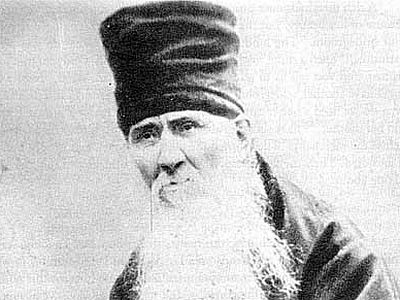 St. Ambrose of Optina
St. Ambrose of Optina
“For the cleansing of the grain fields of our soul it’s easier to divide them into three plots, beginning first to cleanse part of the field of particular love of glory, that is, seeking human fame and compliments, or inordinate praise together with disdain of others, and finally the third field: avarice, that is, love of material things and love of making a profit.
“When these three fields are cleansed, then other passions stemming from them are also imperceptibly cut off with them—that is, anger and remembrance of wrongs, earthly sorrow, envy, hatred, coolness and laziness regarding prayer and works of piety.”
The elder called self-esteemi one of the chief passions—the root of all evil, the source of all passions. He taught people to be judiciously strict with themselves and lenient with others:
“Somewhere it is written that vainglory, if you touch it with your finger, cries out: “They’re skinning me alive!” And although it is not always the case, it does happen to a great degree, only in various forms. Our self-esteem is the root of all evil. It is the source of all passions; it is the cause of all our misfortunes and sufferings, sometimes at the present time, and sometimes as the result of previous mistakes…
“Trying to live piously, we should remember and never forget that everything that we read and think about should relate to ourselves, and not to others—we should be reasonably strict with ourselves while being lenient towards others.”
Elder Ambrose taught that the passions act on all Christians who have not attained perfection, but the Lord providentially leaves these passions in us for humility:
“But in fact we have to experience a lot, because a person does not acquire dispassion all at once. And where there are passions, there are also sorrows with many perplexities and misunderstandings.”
“The Lord leaves passions in a person for the benefit of his soul, so that he would not become conceited, but humble himself.”
The elder taught that the Lord values resistance to the passions more than anything, even if a person is vanquished by them sometimes out of weakness:
“Before God’s tribunal it isn’t character, but the direction of one’s will that counts. Understand that people’s characters have significance only at a human trial, and that is why they are either praised or reproached; but at God’s tribunal people’s characters, as natural attributes, are neither approved of, nor blamed. The Lord looks at our good intention and forcing ourselves to the good, and He values opposition to the passions, even if a person is sometimes conquered by something out of weakness. And again, the One Who knows a person’s innermost thoughts and conscience, and his natural power to do good, and the surrounding circumstances judges negligence concerning this.”
St. Ambrose repeated time and again that it is impossible for a person to correct himself instantly, that it is a prolonged labor, which he compared to the way they drag a barge:
“Whoever has an evil heart should not despair, because with God’s help a person can correct his heart. He only has to watch himself carefully and not let an opportunity go by to be helpful to his neighbor, to confide in his elder often, and to give alms as much as he is able. You can’t do this all at once, but the Lord is long-suffering…”
“We can’t become dispassionate right this second, you know, but each time that you feel your sinfulness, say, “Lord, forgive me!” The Lord alone is able to put love into a person’s heart.”
“Don’t think that you can suddenly correct your bad habits, but only gradually, with God’s help.”
“In order for a person to correct himself, he shouldn’t apply himself suddenly all at once, but like they drag a barge: ‘Pull-pull-pull, slack off, slack off!’ Not everything all at once, but a little at a time. Do you know the rozhon on a ship? It is the pole to which all the ship’s ropes are tied; and if you pull on it gently, little by little everything is drawn; but if you grab it all at once, then you spoil everything from the shock.”
If the passions have quieted down, the elder taught not to rejoice prematurely:
“The enemy cannot give a peaceful spirit, but can only quiet down for a while and grow silent for the sake of planting and inspiring vainglory and conceited thoughts, that supposedly a person has already begun to achieve spiritual success or spiritual feelings; this is when one must remember one’s sins.”
Holy Father Ambrose, pray to God for us sinners!






